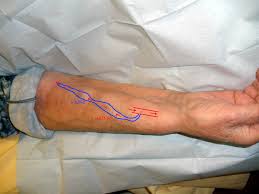At a vein center, specialists diagnose and treat vein-related conditions such as varicose veins, spider veins, and chronic venous insufficiency. Visiting a vein center allows individuals to assess their vascular concerns under the care of qualified vascular specialists. The consultation process is fundamental to understanding your condition and developing a personalized treatment plan. Here is what you can expect during your initial consultation to help you prepare for your visit:
Initial Assessment and Medical History
The consultation at the vein center will often begin with a comprehensive discussion between you and the vein doctor. This initial step focuses on gathering information about your symptoms and understanding your medical background. Symptoms such as pain, swelling, cramping, or visible vein issues will be key discussion points during this phase.
Your specialist will also explore lifestyle factors, such as prolonged sitting, standing, or physical activity, as these can contribute to vein-related issues. Vein doctors will also inquire about any relevant medical history, including surgeries, medications, or family history of vein conditions. This thorough assessment helps the vascular specialist understand the root cause of your issue.
Physical Examination and Diagnostic Testing
Following the initial discussion, the vein specialist will conduct a physical examination to evaluate the condition of your veins. You may be asked to stand during this exam, as this position allows the doctor to observe any varicose veins, swelling, or skin discoloration more clearly. The doctor may also palpate your legs to detect tenderness or abnormalities.
If needed, diagnostic testing will be performed to gather more information. Due to its noninvasive nature, an ultrasound is often commonly used in this step. This imaging method allows the vein doctor to examine blood flow and identify blockages or abnormalities in your veins. Diagnostic tests are particularly helpful for understanding the severity of the issue and determining the next steps.
Discussion of Treatment Options
Once the evaluation is complete, the vascular specialist will explain the findings to you and discuss potential treatment options. Recommendations may vary depending on the severity of your condition and your individual needs. Possible treatment options include lifestyle modifications, such as regular exercise or changes to your work habits. Compression stockings might be suggested to improve blood flow and reduce swelling. Minimally invasive procedures like sclerotherapy or endovenous ablation may be recommended for more advanced conditions. The vein doctor will provide detailed information about each option, highlighting its benefits and risks. This discussion allows you to make informed decisions about your treatment.
Personalized Treatment Plan
After discussing options, the final stage involves developing your personalized treatment plan. The vein doctor at the vein center will tailor this plan to address your specific symptoms, the condition of your veins, and overall health goals. Your specialist will also outline the steps in the treatment procedure, what you can expect during the recovery process, and any aftercare instructions.
The estimated costs of treatment will be shared, promoting transparency. This comprehensive approach allows you to contemplate all aspects of your care and move forward with confidence. Should you have any questions or concerns, the vein doctor will provide clarity to make sure you’re well-informed before beginning treatment.
Visit a Vein Center near You
A consultation at a vein center provides a key opportunity to assess and address your vein concerns effectively. From understanding your medical history to creating a tailored treatment plan, each step is designed to make sure you receive the most appropriate care. If you’re experiencing discomfort or visible vein issues, schedule a visit to a vein center near you for expert evaluation and guidance.

